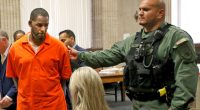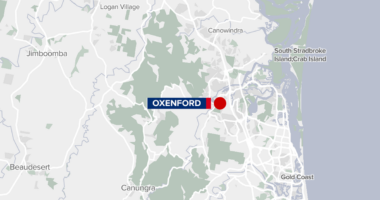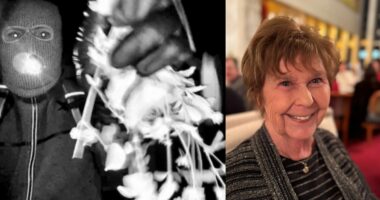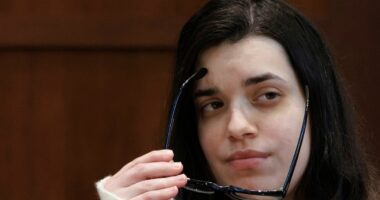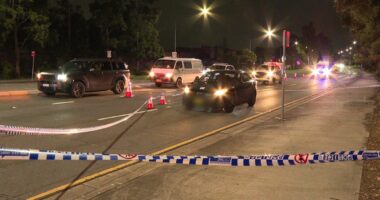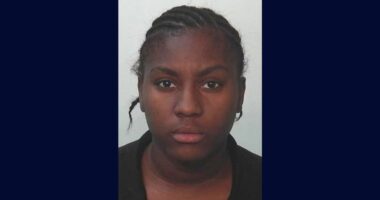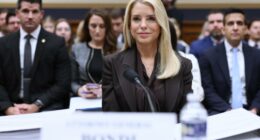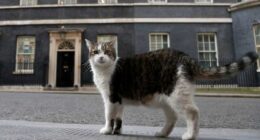Share this @internewscast.com
Main: Mike Lindell gestures with a thumbs up while attending a rally supporting former President Donald Trump on Tuesday, April 4, 2023, in West Palm Beach, Florida (AP Photo/Wilfredo Lee). Inset: Attorney Christopher Kachouroff, accused of submitting an AI-generated court document full of errors in a defamation case involving Lindell (YouTube/Inside Edition).
A federal judge in Colorado delivered a harsh criticism to two lawyers representing MyPillow CEO Mike Lindell in a major defamation lawsuit. This criticism arose after the attorneys used an artificial intelligence program to submit a court document that contained numerous mistakes, including references to fictitious court cases, later misleadingly describing it as an “inadvertent” use of a “prior draft.”
The AI-generated document was related to a defamation lawsuit filed by Eric Coomer, the former head of product security at Dominion Voting Systems. Coomer’s lawsuit stemmed from a series of false allegations made by Lindell and his company following the 2020 presidential election. Ultimately, Lindell was deemed responsible for defaming Coomer and was ordered to pay $2.3 million, a decision he oddly called “awesome.”
In April, U.S. District Judge Nina Y. Wang accused Lindell”s attorneys, Christopher Kachouroff and co-counsel Jennifer DeMaster, of authoring a motion opposition filing through “blind reliance on generative artificial intelligence” and threatened them with the highest level of sanctions, including referral to their respective state bars for disciplinary proceedings. The judge on Monday made good on her threat against the legal duo.
In a 20-page order, Wang took Kachouroff and DeMaster to task, ordering sanctions against both in the amount of $3,000 after finding they were “not reasonable” in certifying and filing the AI-generated work. The court additionally took issue with the attorneys’ explanation for the filing, which they claimed “was simply an inadvertent error,” with the judge noting that there were “contradictory statements” on the matter as well as an utter lack of “corroborating evidence.”
Lindell was not subject to sanctions, as Kachouroff confirmed that his client was not aware of the “myriad AI tools” he uses in his practice.
Love true crime? Sign up for our newsletter, The Law&Crime Docket, to get the latest real-life crime stories delivered right to your inbox.
In the order, Wang noted that despite Kachouroff’s “concessions” about the use of AI during a previous hearing, his subsequent filings took on “a puzzlingly defiant tone and tenor.” She also said that Kachouroff’s attempt to “shift responsibility” for the proper review of his filing was “both troubling and not well-taken.”
For example, the court obtained emails from the lawyers as they prepared to submit the filing in which they attached draft versions which were “replete with the same errors as the filed version,” including citations to fake cases, misrepresentations of principles of law, and “legal principles that simply do not appear within such decisions.”
Additionally, the “corrected” version of the filing that the duo submitted still contained several of the errors that were “specifically discussed” during the April hearing. Wang wrote (citations and brackets omitted):
For instance, the “correct” version still relies on Perrin v. Anderson, for the proposition that: In defamation actions particularly, courts routinely admit evidence probative of truthfulness given that a plaintiff’s reputation and credibility are directly at issue. But Perrin is a civil rights, not defamation, case, and it says nothing about “whether courts routinely admit evidence probative of truthfulness in defamation actions.” Rather, the only reference to defamation is as an example of where the existence or nonexistence of a character trait may be directly at issue because the trait itself determines the rights and liabilities of the parties.
Wang also took issue with Kachouroff saying the AI-related ordeal represented “a clear deviation from what my practice has been” and his claim that it was “just as reasonable to presume that the document could have been a mistake, especially when I commented during the hearing that this must have been a draft.”
The judge said that Kachouroff’s assertion was “belied by similar conduct before a different federal court.”
“The Court takes judicial notice that, just seven days after this Court issued the Order to Show Cause, the same defense counsel team quietly filed two Notices of Errata regarding their briefing in Pelishek v. City of Sheboygan,” she wrote. “Those errata demonstrate the same type of errors in the filed Opposition, including citations to cases that do not exist.”

